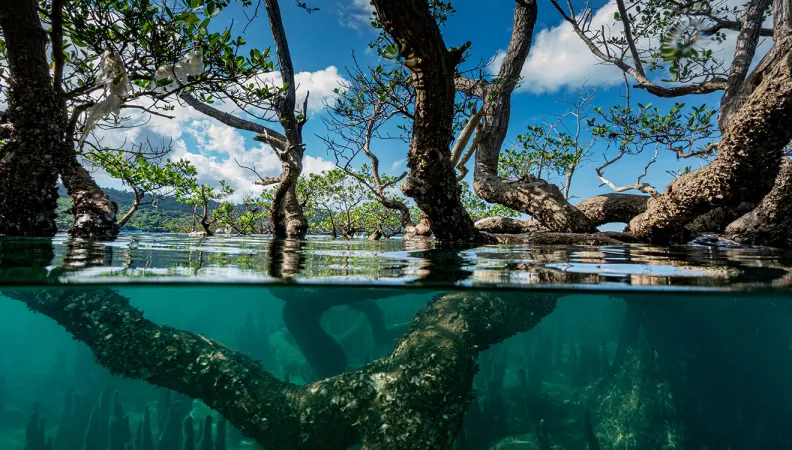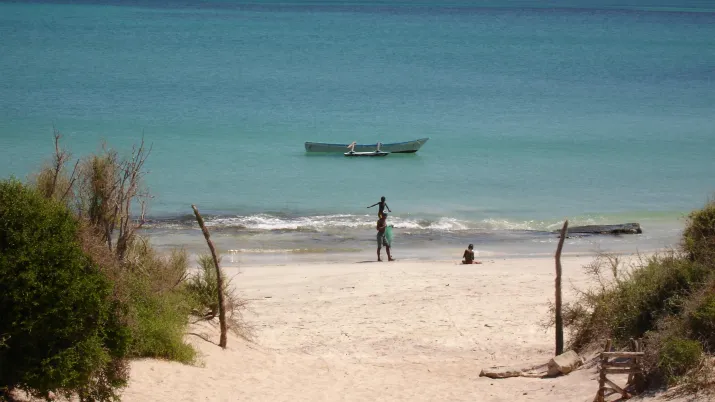Share the page
COP 15: "Protecting the Living World for a Peace Pact with Nature"
Published on

After COP27 on Climate, COP15 on Biodiversity begins in Montreal from December 7 to December 19, 2022, with the goal of establishing a global action plan for biodiversity — an issue closely linked to climate challenges. Healthy ecosystems are the foundation of resilient economies, with more than half of global GDP — estimated at $41.7 trillion — depending on them. They are also crucial for achieving the Sustainable Development Goals and for limiting global warming to 1.5°C.
In response to the urgent biodiversity decline outlined in IPBES reports and its consequences for human populations, the future global framework must address the main drivers of this decline by setting targets for 2030 and 2050. These targets should focus on conservation, sustainable use, and the fair and equitable sharing of benefits arising from biodiversity.
Many issues will be negotiated during COP15, both in terms of goals and the means to achieve them. It is crucial that solutions involve all sectors of society — from the financial sector and businesses to governments, NGOs, and civil society. The participation of Indigenous Peoples and local communities in decision-making processes concerning nature, as well as the recognition of their land rights, is particularly important.
In this context, during COP15, the FFEM aims to highlight:
- the feasibility of integrated solutions addressing Biodiversity – Climate – Development, benefiting local populations;
- the potential to mobilize financial resources for biodiversity conservation through innovative financial mechanisms.
Several funding commitments made by the FFEM will be formalized with beneficiaries during or on the sidelines of COP15.
On December 14, the FFEM and the International Union for Conservation of Nature (IUCN) will sign the financing agreement for the WIOCOR project, in the presence of the French Secretary of State for Ecology. This new project focuses on coastal and marine resilience based on seagrass ecosystems in the Indian Ocean. It offers an innovative demonstration of the value and effectiveness of integrated seagrass-based ecosystem solutions, combining both sustainable value chains and conservation. The project aims to protect the environment and strengthen the socio-ecological resilience of territories and local communities. Over 60 million people, as well as unique species, depend on these critical ecosystems — now under threat.
At the opening of COP15, the FFEM and the Ministry of Finance of Morocco signed a financing agreement to support the Ifrane National Park (PNI). In partnership with the National Agency for Water and Forests of Morocco, the FFEM is supporting this park, home to the Atlas cedar forests, globally important ecosystems. The area faces pressures from agriculture, livestock farming, timber exploitation, and tourism. The PNI has been selected as a pilot site to implement the national strategy "Forests of Morocco 2020–2030", which promotes responsible tourism and well-managed outdoor activities, engaging local communities while respecting the richness and sensitivity of the natural heritage. Nature-based sports are seen as a lever for local development, reducing territorial inequalities, and fostering social inclusion, particularly for youth and women. The project may serve as a replicable model for other national parks in Morocco. This initiative is closely aligned with the “Ghabati, Hayati” program, supported by AFD and Expertise France, which also supports the national deployment of the Forests of Morocco strategy.
On the sidelines of COP15, the FFEM and the PACIFICO Foundation will sign a financing agreement to provide technical assistance to the PACIFICO Conservation Trust Fund. The goal is to implement innovative approaches in regional governance, promote new technologies and sustainable blue economy models, and help secure the long-term financial viability of conservation efforts in the Tropical Eastern Pacific Biological Corridor, recognized by Panama, Costa Rica, Colombia, and Ecuador during COP26. By protecting coastal and marine biodiversity at the regional level and supporting blue economy initiatives, the project contributes to the preservation of marine protected areas (MPAs) and to the social and economic development of coastal communities in the region.
Finally, the Terr’Indigena project — supported in its first phase by the FFEM and the French Development Agency (AFD) — will be showcased through the signature of its second phase on December 13, in partnership with AFD, aimed at consolidating and sustaining its impacts. The first phase of the initiative supported 18 Indigenous communities in Brazil, Colombia, and Ecuador to improve their living conditions and protect 17 million hectares of Amazon rainforest.
These projects, along with many others supported by the FFEM, serve as potential sources of inspiration for the concrete implementation of the Post-2020 Global Biodiversity Framework by countries gathered at COP15.
Learn more
A LOOK AT THE INNOVATIVE NATURE OF ‘PROJECT RESSOURCE’ WITH CONSTANCE CORBIER-BARTHAUX
Published on October 28, 2019
The FFEM publishes a new capitalisation on Marine Protected Areas (MPAs)
Published on August 30, 2021


